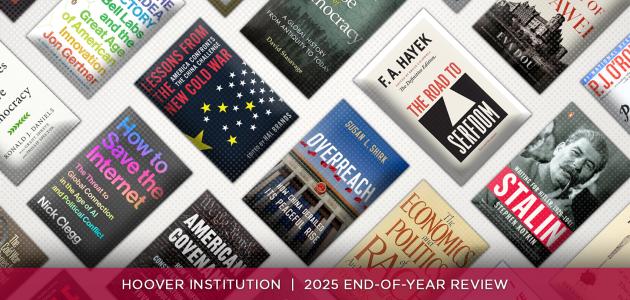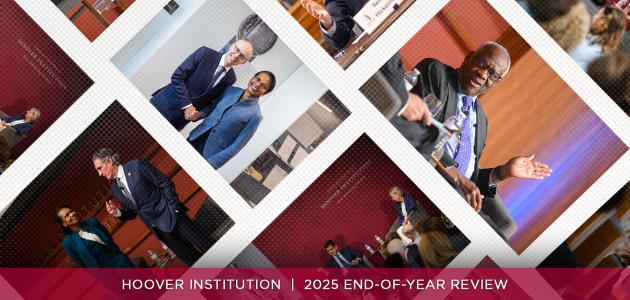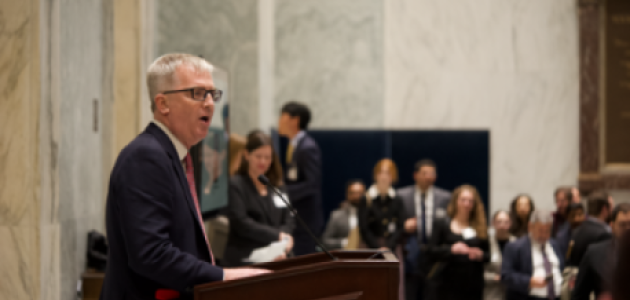A weekly digest of the latest news and research related to the work of the Technology, Economics, and Governance Working Group. Topics covered in the digest include cybersecurity, domestic regulation, innovation, international competition, social media disinformation, and the California exodus.
This week’s roundup features Russia’s retreat from Kyiv, US hypersonic missile tests and neutralization of Russian malware, lockdowns in Shanghai to stall the spread of COVID-19, and an interview with former President Trump looking back at the January 6th insurrection. Additional news covers opposing views of the American Innovation and Choice Online Act, Silicon Valley’s search for the next tech necessity, the State Department’s new Bureau of Cyberspace and Digital Policy, and human-machine teaming in the military.
Industrial Policy, International Competition, and Cooperation
Tanks and bodies mark path of Russian retreat near Kyiv | Reuters
After Russian forces retreated from Kyiv and its surrounding provinces, Ukrainian fighters recaptured the battered capital territory, uncovering a trail of ruined tanks, bodies, and devastation left in the invaders’ wake. While the Kremlin claims that the withdrawal was a tactical decision intended to refocus military efforts on the southeastern Donbas region, Ukraine and its allies say that Moscow was forced to reconsider its strategy after incurring heavy losses. Russia has framed its retreat as a tool to further peace negotiations.
US tested hypersonic missile in mid-March but kept it quiet to avoid escalating tensions with Russia | CNN
According to a defense official, the US tested a hypersonic missile in mid-March but chose not to announce the exercise to avoid escalating tensions with Russia. The test marks the second time Americans have successfully tested a Hypersonic Air-breathing Weapon Concept (HAWC) missile and the first successful test of Lockheed Martin’s HAWC system. Notably, the HAWC’s destructive power is kinetic; it does not carry a warhead. As a cautionary measure, the US also canceled a test of the Minuteman III ICBM last month to reduce risks of nuclear escalation amid Moscow’s invasion of Ukraine.
Manufacturers Grind to a Halt in China as Covid Lockdowns Expand | The Wall Street Journal
China has responded to its worst outbreak of Covid-19 in over two years by expanding lockdowns—a strategy that continues to slow production in a global economy already reeling from Russia’s invasion of Ukraine and rising inflation. Beijing’s stringent measures have had far-reaching consequences for international industry as factories temporarily close and truck drivers transporting goods within China’s borders are forced to quarantine for weeks at city borders. Affected Chinese facilities include several that manufacture components for Tesla and Apple. Experts fear that supply chain bottlenecks will persist and restrict American access to consumer goods.
Domestic Regulation
How Punishing Big Tech Harms America | The National Interest
Some have criticized the Department of Justice’s decision to endorse the American Innovation and Choice Online Act, an antitrust bill that would ban tech giants from using their platforms to elevate their own products above those of their competitors. Opponents of the bill argue that it unfairly penalizes a few large firms for practices that are both widespread in the tech industry and not overly anti-competitive or particularly harmful to consumers. Circumventing free markets to selectively punish tech giants could undermine America’s tech dominance and stifle the innovative capacity of these essential companies.
Innovation
The testing and explainability challenge facing human-machine teaming | Brookings
As the military continues to seek higher levels of AI integration, serious questions remain about how to safely and effectively manage connections between machine learning systems and their human operators. Human-machine teaming (HMT) is designed to leverage the best of both worlds—combining the power of human intuition with the speed and precision of automated, data-driven technologies. However, individual variation in human performance metrics may complicate efforts to develop standardized evaluations of HMT systems. Moreover, challenges associated with comprehensively identifying all possible AI failure states mean that training operators for every contingency is an impossibility. Under these circumstances, convincing operators to trust their increasingly advanced machine counterparts will remain a challenge.
Cyber
U.S. Says It Secretly Removed Malware Worldwide, Pre-empting Russian Cyberattacks | The New York Times
Officials announced on Wednesday that the Justice Department and the Federal Bureau of Investigation received secret court orders to conduct defensive cybersecurity operations to neutralize Russian botnets embedded in private American networks. The United States also took similar actions internationally with the help of its allies. Although American forces disconnected the botnets from their handlers in Moscow before the malware was activated, Russia could have intended to utilize the malware for a range of purposes, including an offensive cyberattack or enhanced surveillance.
State Department formally launches new cyber bureau | The Hill
On Monday, the State Department officially launched its new Bureau of Cyberspace and Digital Policy. The bureau will contain three policy units: international cyberspace security, international information and communications policy, and digital freedom. Policymakers hope that the establishment of the bureau will further efforts to modernize the State Department and improve its capacity to manage the diplomatic implications of new technologies.
California
Silicon Valley’s search for the next big tech platform | The Economist
As smartphone technologies plateau, causing consumers to upgrade less often, Silicon Valley’s most prominent innovators are seeking out the next tech necessity. As many promising technologies like virtual reality, smart homes, and in-car tech have failed to break out of niche markets, predicting the tech commodity of the future has proven difficult. However, sales of wearable technologies like smartwatches and other health-tech gadgets have soared in recent years—a trend that may indicate that the revolutionary product the Valley is looking for will emerge in this domain.
Freedom of Speech, Domestic Democracy, and Extremism
Trump deflects blame for Jan. 6 silence, says he wanted to march to Capitol | The Washington Post
In a recent interview with the Washington Post, former President Trump expressed regret that he did not march to the Capitol with his supporters on January 6th, claiming that the Secret Service prevented him from participating. Trump also praised the rally’s organizers while blaming the mayor of D.C. and Speaker Nancy Pelosi for not stopping the violence. The former president failed to explain the large gap in his White House phone logs during the insurrection but denied allegations that he used burner phones or tampered with call logs.
Seditious Conspiracy Is the Real Domestic Terrorism Statute | Lawfare
While many experts have argued for officially criminalizing domestic terrorism, the seditious conspiracy statute contains much of the legal framework needed to prosecute domestic terrorists. However, seditious conspiracy may not offer a wholly adequate substitute for a domestic terrorism statute as the latter has a narrower intent requirement. Moreover, expanding the scope of federal criminal law to better prosecute domestic terrorists has its own challenges and raises difficult questions about civil liberties.














